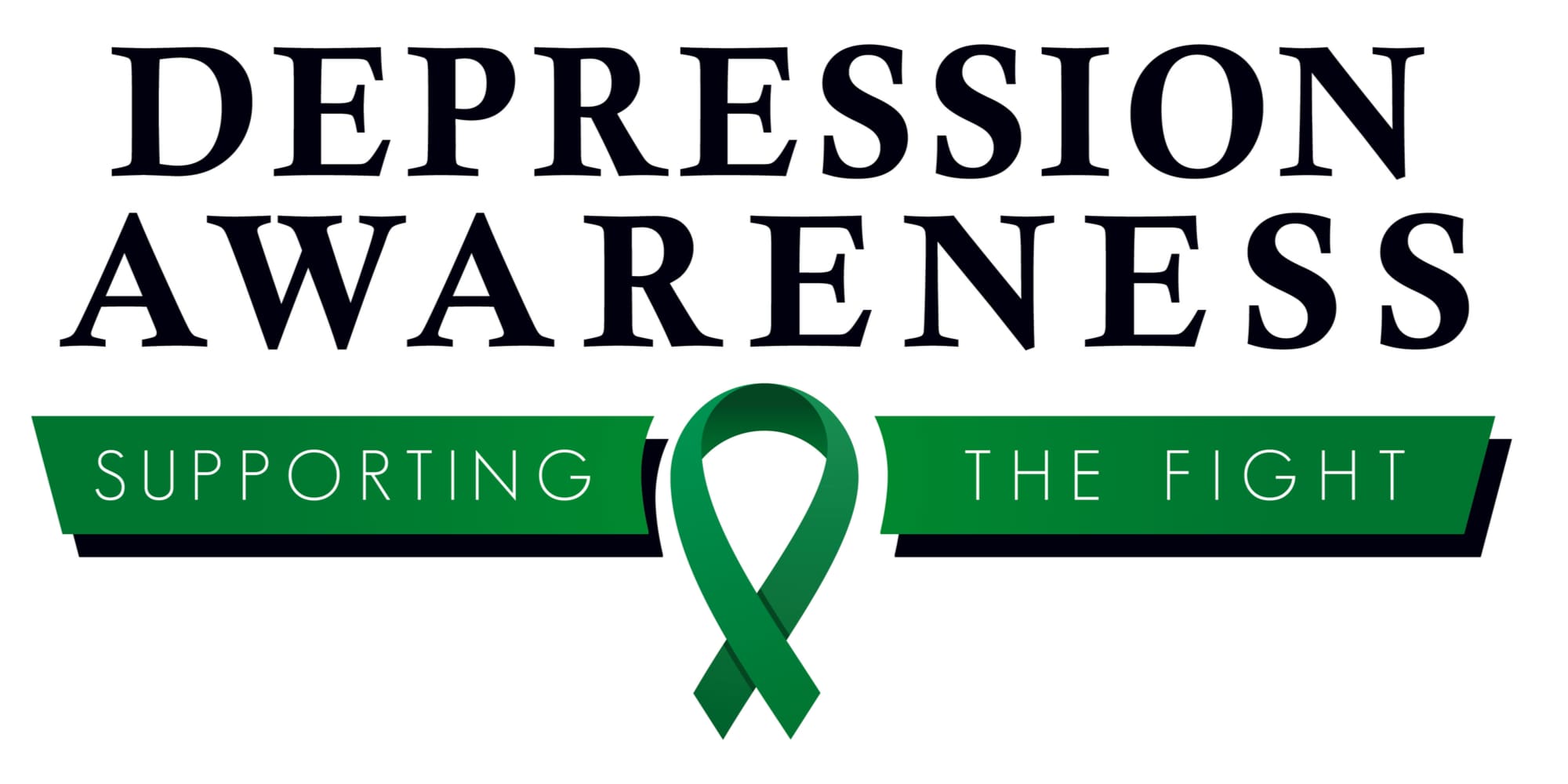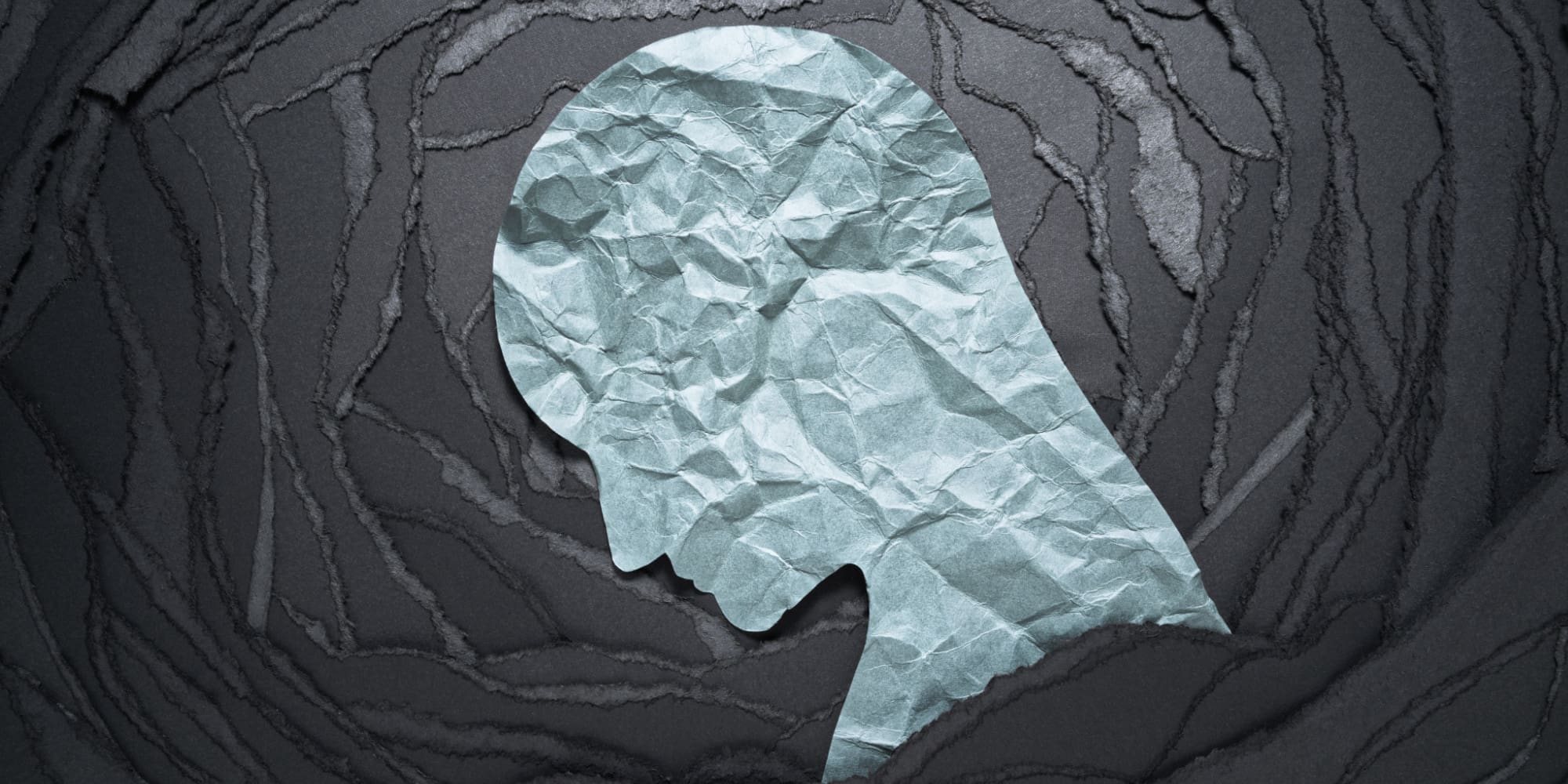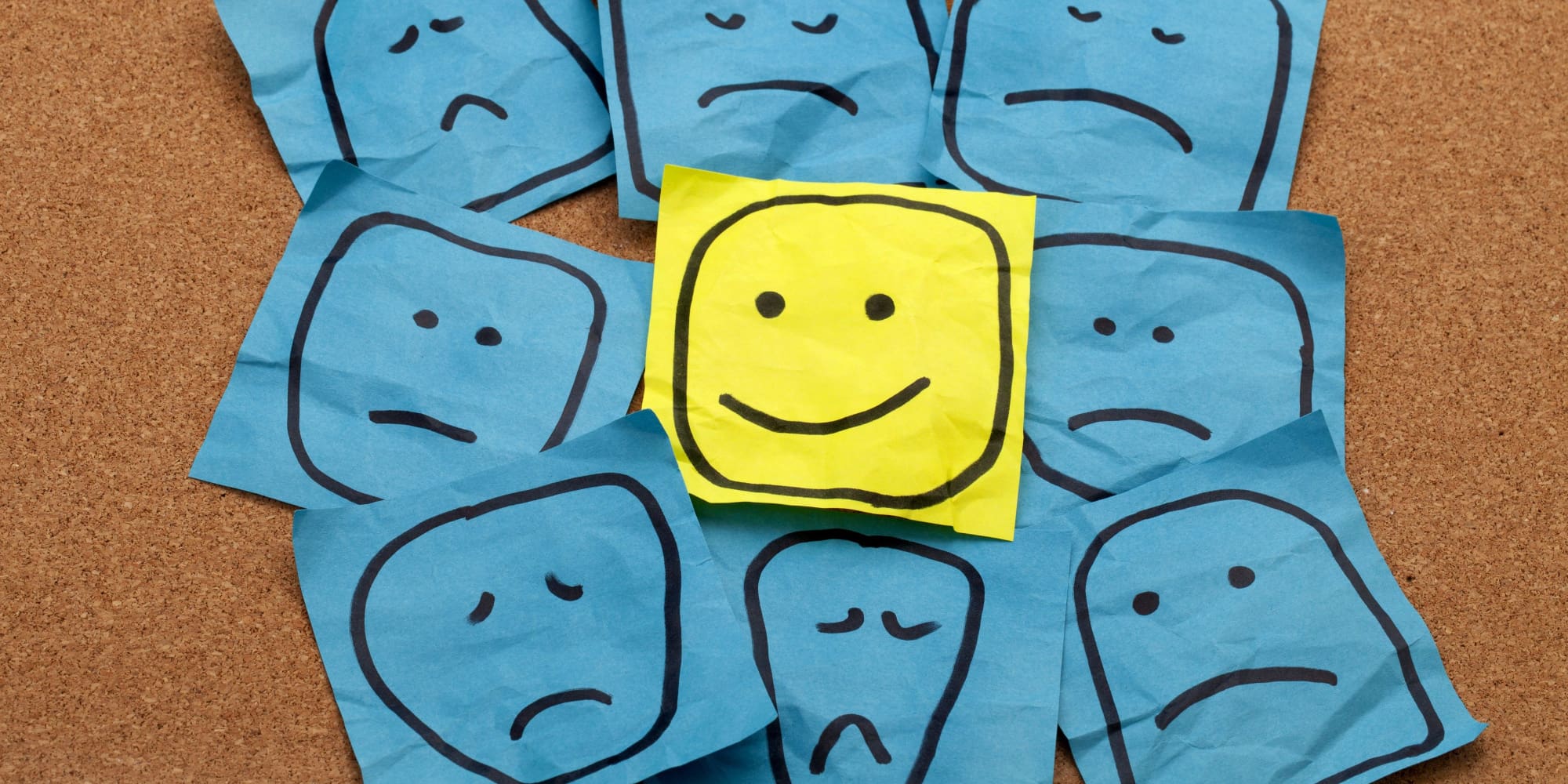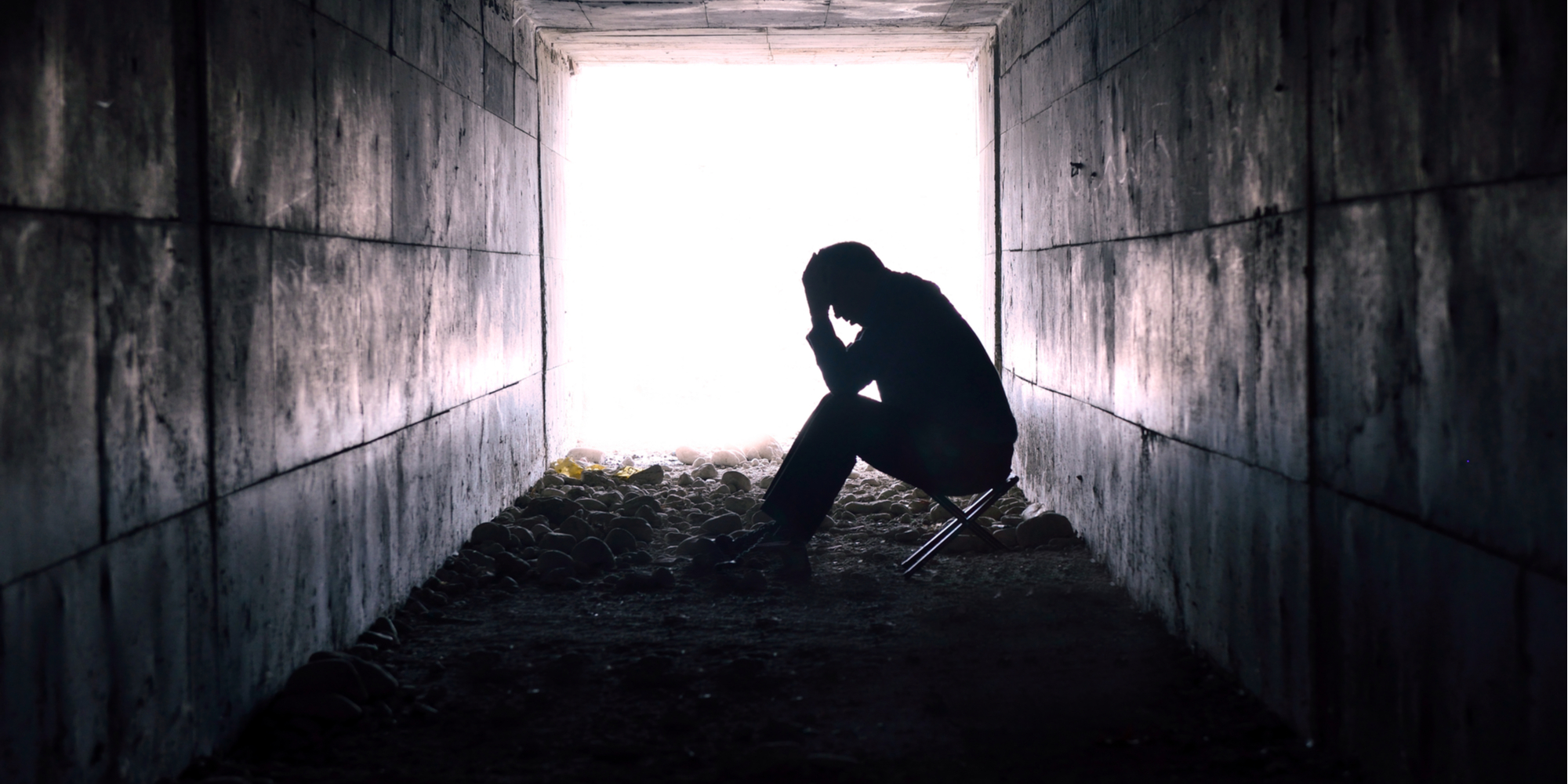Depression Awareness Month 2021 comes at the end of another difficult year. Prior to the arrival of COVID-19, depression and anxiety were already the most prevalent mental health disorders in the United States. Since the start of the coronavirus outbreak, depression rates in the United States have fluctuated but have never returned to pre-pandemic levels. Given this, there has arguably never been a better time to recognize Depression Awareness Month in the U.S.
Historically, depression affected about seven percent of the adult population during pre-COVID years. In addition, it has been the leading cause of disability for the age group 15 to 44. Current rates report that this number has at times tripled, with nearly 30% of Americans reporting symptoms of depression during the year 2020. Due to the common occurrence of depression, mental health advocates dedicate the entire month of October to raising depression awareness.
Contents
What Is Depression Awareness Month For?
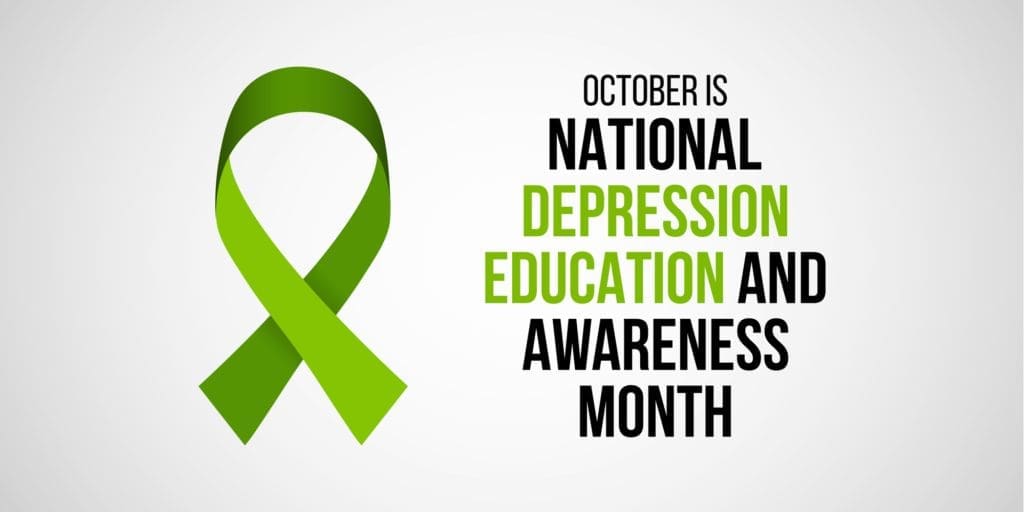
The objective of Depression Awareness Month is to bring attention to this common mental health disorder through designated information sessions and events throughout October. For example, October 7 is designated National Depression Screening Day to encourage anyone with concerns to get a depression assessment. Similarly, in some areas, October 8 is deemed National Depression Awareness Day to again draw acknowledgment to this disorder.
Other ways Depression Awareness Month is illustrated is by wearing the depression awareness color green, incorporating the depression awareness ribbon, or by sharing depression awareness quotes. Beyond simply acknowledging depression, depression awareness is about discussing depression resources and treatment options and emphasizing the fact that nobody has to face depression alone.
The Difference Between Sadness and Depression
Part of the goal of Depression Awareness Month is to educate. Mental health experts emphasize that sadness is not depression, although they share some overlapping qualities. However, depression is a much more serious issue. Sadness is a normal human emotion that acts as a response to occasions that cause physical or emotional upset. For example, the death of a pet may result in intense sadness. However, sadness usually fades in time allowing a person to resume regular activities.
Depression, on the other hand, is a diagnosable mental illness characterized by long-term disruptions in mood and the ability to carry out daily responsibilities. For example, a depressed person may have a hard time finding enjoyment in anything, even activities that they used to cherish.
Other symptoms of depression include:
- Ongoing sadness
- Lack of motivation
- Feelings of hopelessness or worthlessness
- Increased or decreased appetite
- Restlessness or irritability
- Lethargy
- Sleep disturbances (too much or too little)
- Digestive issues
- Thoughts of suicide
To be diagnosed with depression, several symptoms must be present daily for several weeks or longer. While asking for depression may be difficult, it is a condition that can last for years. Therefore, if you feel like you may be experiencing signs of depression, it is important to discuss the type of depression and potential treatment options with a mental health provider sooner than later.
Types of Depression
In the past, different types of depression were lumped under one depression classification. Currently, different types of depression are recognized. In this way, more specific therapies and treatment plans can be tailored to those experiencing depressive symptoms. The main types of depression are as follows:
- Major Depressive Disorder (MDD)
MDD, or clinical depression, is likely what you think of when you hear the term, “depression.” Clinical depression is often described as feeling numb to life, and it can be a debilitating mood disorder. - Persistent Depressive Disorder (PDD)
PDD, or dysthymia, is long-term depression of two years or more. Symptoms are usually less severe than MDD, although they could progress over time. - Premenstrual Dysphoric Disorder (PMDD)
PMDD is related to Premenstrual Syndrome (PMS) and therefore only affects women. In comparison to PMS, PMDD has a more distinct effect on moods. - Bipolar Disorder
Bipolar disorder is characterized by mania (brief periods of intense energy) and depression. The main differentiating factor of bipolar disorder is the varying nature between high and low moods. - Seasonal Affective Disorder (SAD)
SAD is a seasonal depression that occurs during the winter months. This type of depression usually comes around the same time every year and alleviates once the spring season arrives. - Psychotic Depression
Psychotic depression is characterized by delusions or hallucinations alongside depressive symptoms. Usually, the delusions also revolve around depressing themes.
Regardless of the type of depression, Depression Awareness Month is a time to open the floor to discussion and to consider available treatment options.
Getting Involved in Depression Awareness Month


Getting involved in Depression Awareness Month is as easy as sharing information and reducing the stigma of accessing mental health treatment. You can share reputable resources with friends and family in person or on social media. Simply declaring yourself an advocate by recognizing mental illness, supporting available treatment, and offering assistance to those who need it fulfills the objective of Depression Awareness Month.
Finding Mental Health Help in South Florida
At the Port St. Lucie Hospital in South Florida, we applaud the efforts of any mental health awareness efforts. Our team understands that asking for help can be difficult, and we are here to support you every step of the way.
Our facility is located near the southeast coast of Florida, and we boast a variety of programs that can assist in both mental health and addiction recovery. These include:
- Adult Mental Health Program
- Crisis Care Services (Emergency Services)
- Dual Diagnosis
- Medical Detox
- Partial Hospitalization Program (PHP)
- Senior Adult Mental Health Program
If you’re in need of mental health services during Depression Awareness Month or any other time of the year, you can contact Port St. Lucie Hospital at (772) 238-7734. Alternatively, you can use our confidential online contact form. Whichever way you choose to reach out, we’ll be ready to answer questions and get you started on the path towards recovery.

